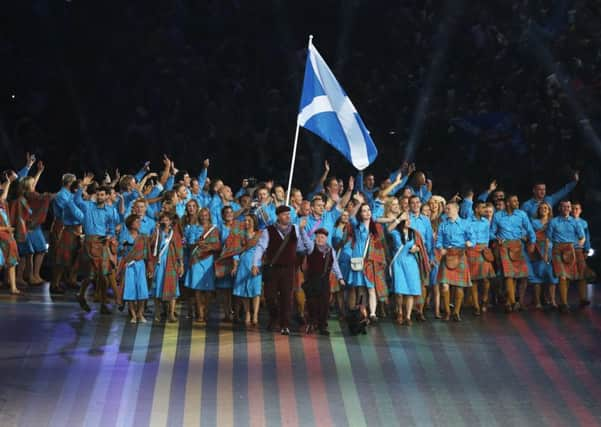Leader comment: Wonder drug can make Scots happier, healthier, richer


Human beings evolved to be extraordinary athletes, capable of ‘persistance hunting’ in which they run down much faster prey over long distances, sometimes of more than 20 miles. In 2013, four Kenyan villagers even chased and captured two cheetahs – that had been killing their goats – over four miles during the hottest part of the day.
In Scotland, the average person has become a pale shadow of our far more active ancestors as modern life has become increasingly sedentary. It possible for many office workers to spend almost an entire day in the seated position, whether in a car, behind a desk at work or on the sofa.
Advertisement
Hide AdAdvertisement
Hide AdWe are now starting to wake up to the fact that this way of life is killing us, increasing the chance of getting a host of life-threatening diseases. Moderate physical activity has also been proven to have huge benefits for mental health. But, despite the growing evidence, many people seem to be reluctant to get off the couch, ditch the junk food and live a healthier lifestyle.
So there were high hopes that Glasgow’s Commonwealth Games in 2014 would inspire the nation, leaving a legacy of greater participation in sport, and transforming Scots from among the most obese and least fit people in Europe into humans at least a bit closer to the elite athletes hurtling round the track. It didn’t work. A new report has found that the number of people taking exercise in the area around the Games’ venues actually fell sharply, with 53 per cent physically active in 2016 compared to 62 per cent in 2012. And there was no “step change in population levels of physical activity” across Scotland either.
It was probably overly optimistic to expect any kind of major effect on the Scottish psyche from a single athletics competition. The changes to lifestyle for many people are too great. Some may have been more in awe of the athleticism on display, rather than inspired to try to emulate it.
But the lesson we should learn from this setback is that the shift in attitudes requires greater endeavour. The Scottish Government has a leading role to play, but so do businesses, schools, doctors, old folks homes, and anyone who has a concern for the people of this country.
Australia managed to turn itself into a “sporting nation”, where the image of an Australian became associated with being fit, healthy and outdoors in the sunshine. The reality might not quite live up to this, but still it has had an effect.
Scotland doesn’t have the same weather as the Gold Coast, where this year’s Commonwealth Games gets underway today, but we should still strive to develop an ethos that all Scots should regularly take part in a sport or other form of physical activity, whether it’s playing football or taking a brisk walk.
At the moment, many have the idea that sport is something children do at school. Others continue into their early 20s or 30s, then quit when they realise they can no longer compete at the same standard. This attitude should change. It should become a natural thing for people in their 70s and older to join sports, fitness and walking clubs.
The rewards for turning Scotland into a truly “sporting nation” would be huge. The “wonder drug” would make us fitter, healthier, happier and, indeed, richer given the savings for the NHS and the boost to productivity. So Scotland must not now simply give up, slouch back on the couch and cheer on our athletes in Australia on the TV. After all, one of our favourite sayings is: “If at first you don’t succeed, try, try again.”
